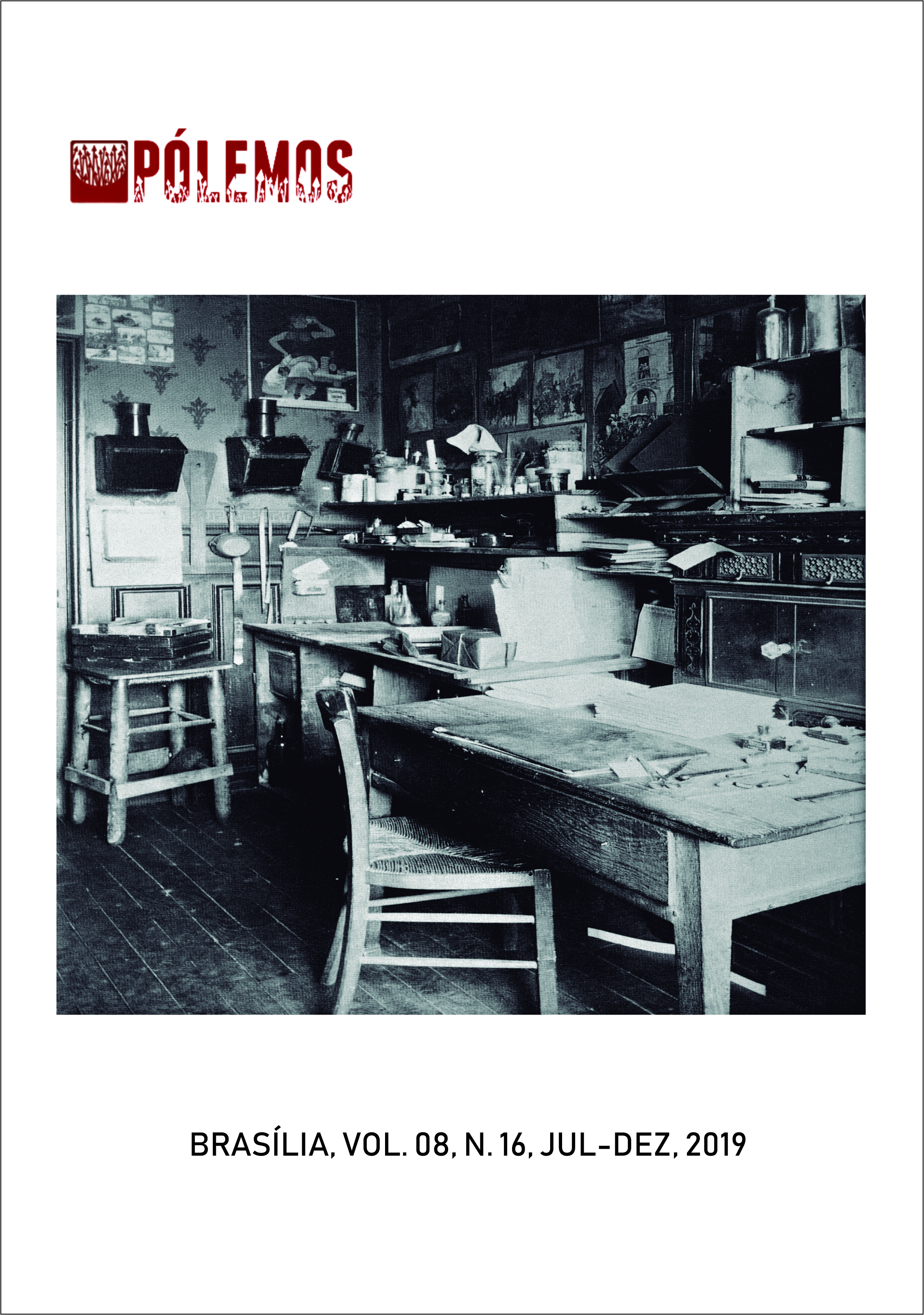SOBRE O INFINITO NA FILOSOFIA DA VERDADE DAS CIÊNCIAS FORMAIS
DOI:
https://doi.org/10.26512/pl.v8i16.23738Palavras-chave:
Verdade. Semântica. Infinitude. Tarski. Linguagem.Resumo
A verdade lógica, muitas vezes, acaba por receber um patamar epistêmico, ou, até mesmo, metafísico superior a outros tipos de verdade, justamente por ser considerada mais básica do que estas outras, sendo utilizada, inclusive, como um tipo de pedra de toque, fazendo uma alusão puramente metafórica a Kant, para a fundamentação destas verdades. De todo modo, nada disso garante que a verdade lógica, por sua vez, encontra-se totalmente estabelecida e livre de fantasmas, afinal, até mesmo a própria noção de verdade lógica é algo ainda a ser analisado. Este texto tem por finalidade, portanto, investigar este papel fundacional da verdade lógica e estudar algumas das questões que surgem neste processo.
Downloads
Referências
AYER, Alfred Jules. Language, truth, and logic. 2nd ed. London: Gollancz, 1956.
BÉZIAU, Jean-Yves. Universal logic. In: Logica ’94 – Proceedings of the 8th International Symposium. T. Childers & O. Majer (eds.). Prague, 1994. p. 73-93.
BOOLOS, George Stephen; BURGESS, John Patton; JEFFREY, Richard Carl. Computabilidade e lógica. São Paulo: Unesp, 2012.
DA COSTA, Newton. Ensaio sobre os fundamentos da lógica. 2 ed. São Paulo: Hucitec, 1994.
FREGE, Gottlob. The thought: a logical inquiry. Mind, JSTOR, v. 65, n. 259, 1956, p. 289-311.
HEGEL, Georg Wilhelm Friedrich. Introdução à história da filosofia. In: Os Pensadores: Hegel. São Paulo: Nova Cultural, 1988.
HRBACEK, Karel. Introduction to set theory. 3 ed. Nova York: Marcel Dekker, 1999.
KRIPKE, Saul Aaron. O nomear e a necessidade. Lisboa: Gradiva, 2012.
PRIEST, Graham. In contradiction. 2 ed. Oxford University Press, 2006.
Downloads
Publicado
Como Citar
Edição
Seção
Licença
Copyright (c) 2019 PÓLEMOS ”“ Revista de Estudantes de Filosofia da Universidade de Brasília

Este trabalho está licenciado sob uma licença Creative Commons Attribution-NonCommercial-NoDerivatives 4.0 International License.
Todos os trabalhos que forem aceitos para publicação, após o devido processo avaliativo, serão publicados sob uma licença Creative Commons, na modalidade Attribution-NonCommercial-NoDerivatives 4.0 International Public License (CC BY-NC-ND 4.0). Esta licença permite que qualquer pessoa copie e distribua a obra total e derivadas criadas a partir dela, desde que seja dado crédito (atribuição) ao autor / Ã autora / aos autores / às autoras.


